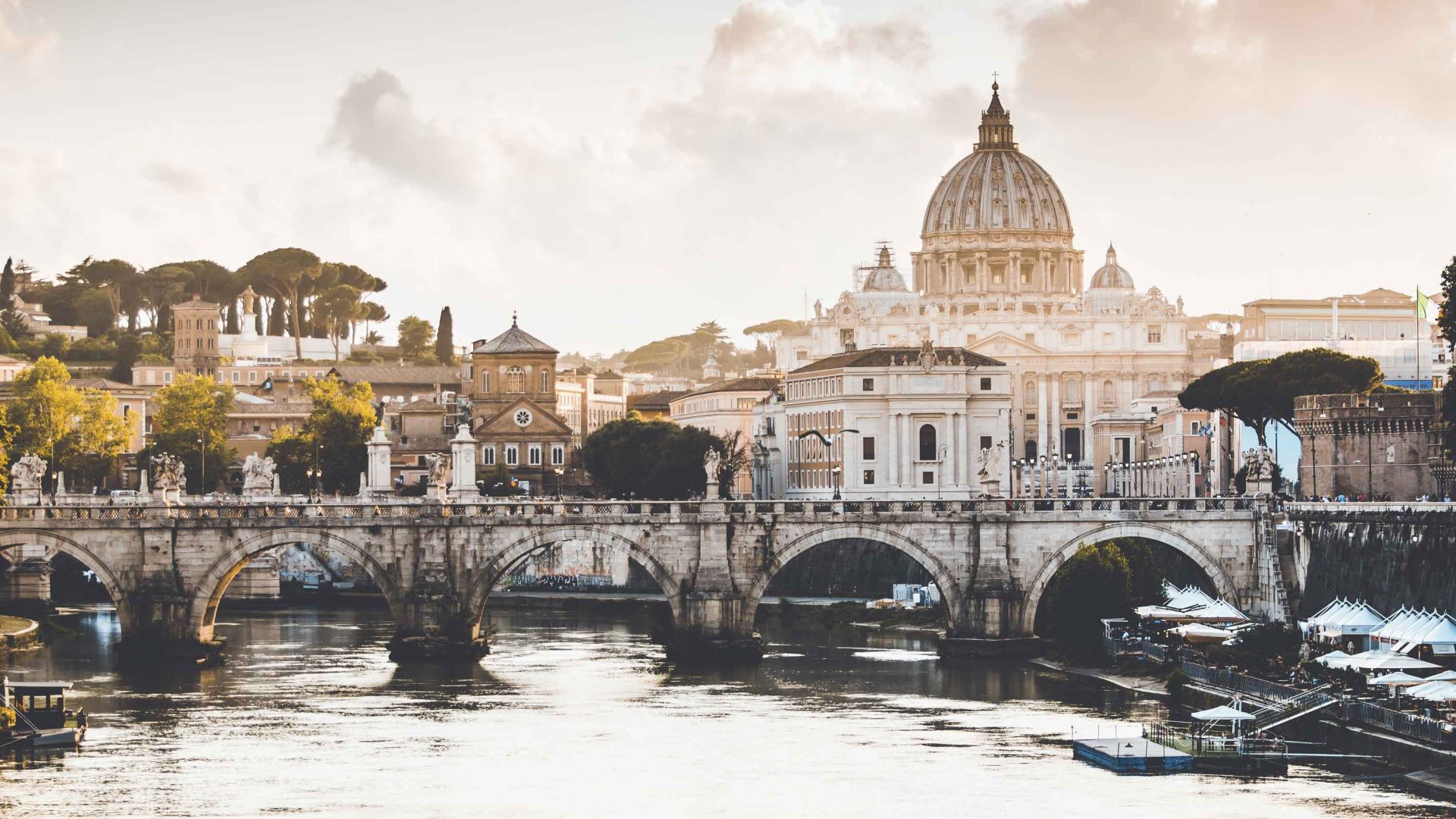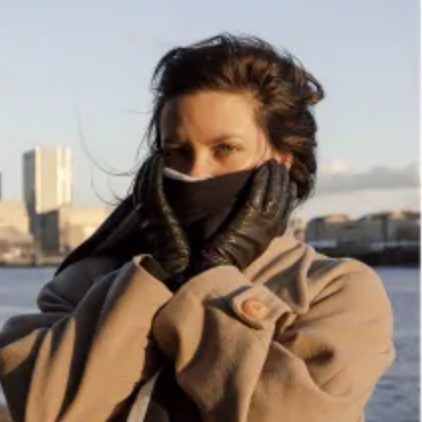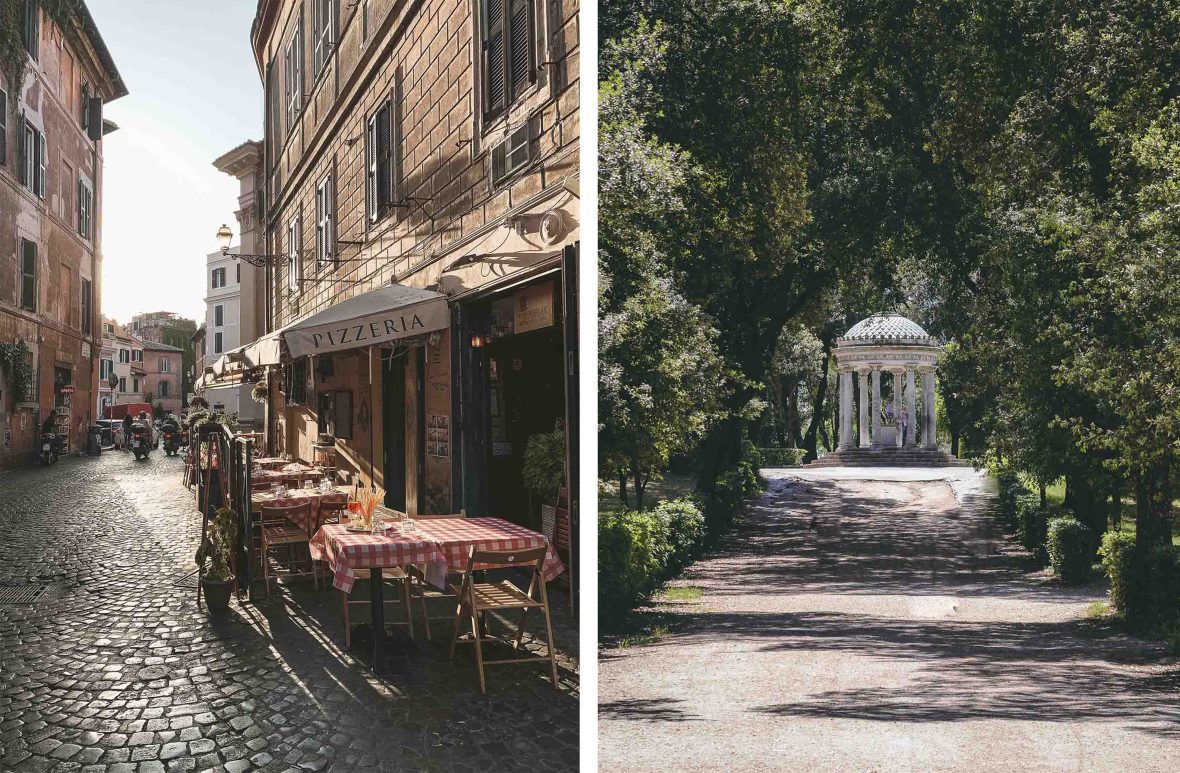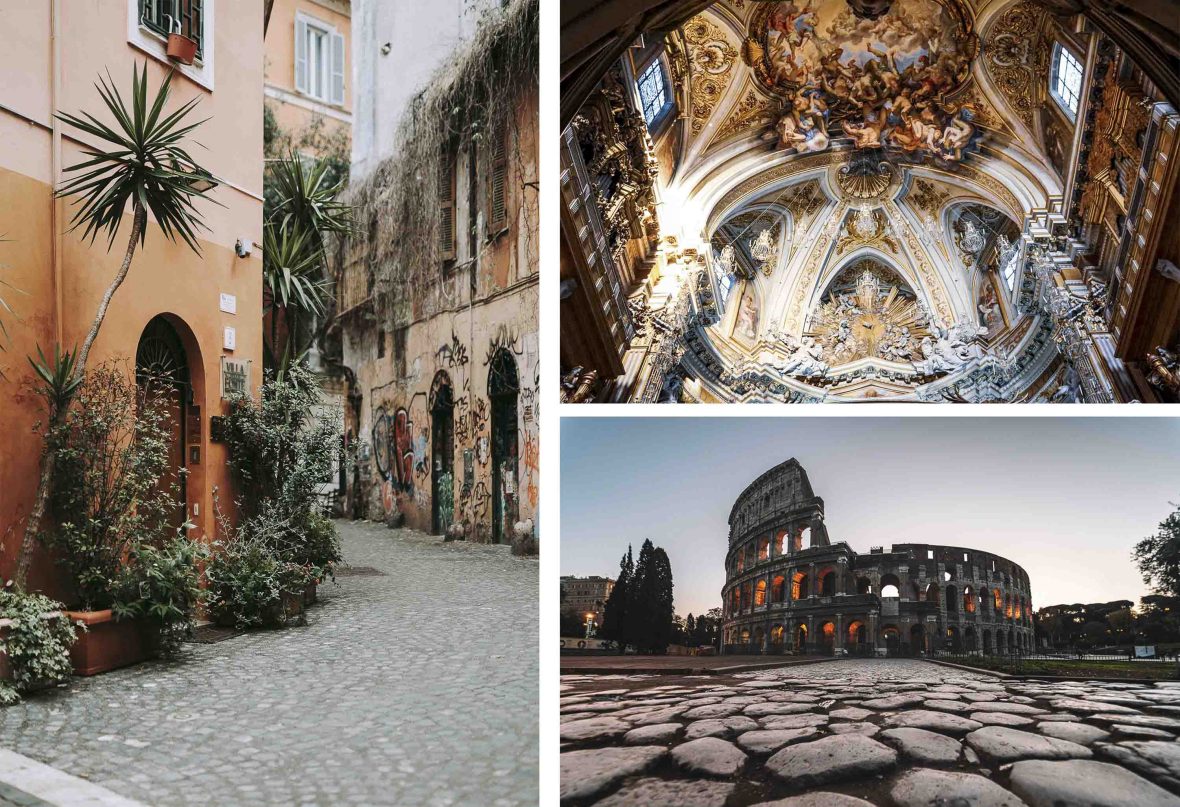
On a trip to the Rome Film Festival, writer Alexandra Pereira ponders the fantasy of taking yourself somewhere and learning how to enjoy it.


On a trip to the Rome Film Festival, writer Alexandra Pereira ponders the fantasy of taking yourself somewhere and learning how to enjoy it.
Lots of people claim to be shit at traveling by themselves—the same goes for someone saying they’re terrible at cooking for themselves. I heard chef Nigella Lawson—of meecro-wah-vey fame—muse over the idea once on the radio. It was a lockdown-era interview and she was talking about taking yourself somewhere or making an elaborate dinner for one—owning one’s capability to be sensual alone. That we can’t enjoy something laborious or effortful solo feels sad. It took me the entire decade of my 20s to admit to liking my own company and spending three hours on a dinner made just for me.
At 27, I finally upped sticks to a cheaper city and assembled a travel writing portfolio made up of the meager journeys I’d made, affording myself the sort of travel I wish I’d done when I was in my early 20s. Instead of chaotic trips to festivals with friends of friends, staying in ill-advised rentals for 24-hour benders including zero exploration of the local nature and even less people-watching, I now found myself roaming for days and weeks on end.

I’ve followed Japanese businessmen to jazz cafes in Bangkok, gone to readings with bookshop owners in old Greek villages, to Pride with some actors in Buenos Aires and to dinners with stranded people after canceled flights. Although I adore traveling with loved ones and meeting new and old friends for hours or days in foreign climes, there’s a certain majesty to doing it solo.
In Rome this past October—the season of the last long, warm sunny days and cornflower blue skies they call Ottobrata Romana—I enjoyed 10 days more or less alone, sampling cinema in the gardens of Villa Borghese during the Rome Film Fest, discovering aged bookshops, appreciating frescoes and Caravaggios, dining on bibimbap when I was tired of pasta and cheese, visiting English bookshops and enjoying many, many hours of being lost.
It’s impossible to not become sort of dramatic and ecclesiastical during longer swathes of time in Italy—particularly when alone.
Between movies, I found myself lying with heat exhaustion beside the stone lions on the steps of the National Gallery of Modern Art, wandering the neighborhood of Pigneto, buying harem pants from an Indian market stall to enter the Vatican, channeling the dead at the Sant’Agnese mausoleum, celebrating the orgasm of Bernini’s Saint Teresa at Santa Maria de Vittoria Church. I popped in to say hi to John Keats at his unnamed grave, and drank boozy granitas at Bar San Calisto.
But at night, I carry a whistle given to me on a hiking trip and keep it close to hand when it’s dark. I walk differently. Never with headphones. The times I’ve walked home alone at night are in the thousands. Tens of thousands? I’m rarely nervous, usually enjoying the route or walking fast to keep warm, but I have panoramic awareness.
One night at the festival, I get lost behind some bypass on my way to a 9pm screening. The pink sunset has long gone and I have to scoot on my ass down a steep hill behind the Olympic park where the main cinema complex is. I enter a dusty, badly lit backstreet and two police cars with around five policemen are smoking, watching me. No smiles, no questions, no nothing. Except the everything of their demeanor, so steely and nonreassuring. I walk fast, falsely confident but not too confident. I don’t want to look attractive but I don’t want to look vulnerable either. Go go go go go, I think, seeing the lights of the theater someway in the distance. I watch a film about a dancer breaking free, my favorite new subgenre.

It’s impossible to not become sort of dramatic and ecclesiastical during longer swathes of time in Italy—particularly when alone. Whenever I’ve had a brush with danger, my mother says: there’s an angel looking after you.
One day, when I had three hours before my next screening at the festival, I took to following an elderly man about on this sweltering 30-degree afternoon. He was doing that ‘old man wandering’ thing of lurching forward in slow, heavy strides with both arms knotted behind his back and his legs swinging in a sort of tilt. Following the paces of the elderly Roman, I kept some 30-50 meters behind him, feeling a little guilty, before taking a different path like a decent person.
In the movie in my head, though, I played out following him all day long on his meanders—stopping for coffee a few shops away from him, selecting the osteria across the street from where he chose to stop for a stuffed courgette flower and a white wine. In my head I followed him all the way home. He unlocked his knotted palms from where they leaned against the tweed tailoring, tremblingly reaching for keys to the apartment where he lives; alone.

Alexandra Pereira is a writer and editor published by Vice, Suitcase, The Paris Review, Fodor’s and Service95. She writes about water, solo travel, folklore and people and also makes theatre at Blood Sport Co and is a contributor at Pariah Press and Union Magazine. She lives between London and Copenhagen.






Can't find what you're looking for? Try using these tags: